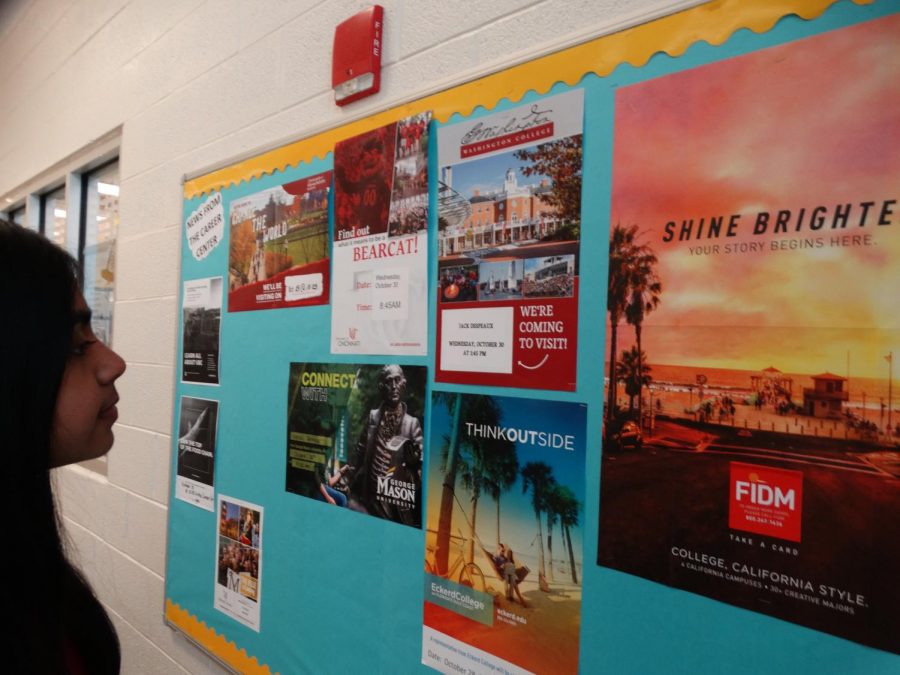College not for everyone, and that’s OK
A student examines the different post-high school college options posted on the wall.
December 5, 2019
It is that time of year where high school seniors, counselors, and parents hustle through test dates and college application deadlines. However, as the cost of tuition rises and the national student loan debt crisis continues to make headlines, students wonder whether college is worth it. According to the National Center for Education Statistics, attending college can cost about $26,000 per year. Families must weigh the cost against the likelihood of a better salary and the opportunities college can provide.
Despite rising tuition and opportunity costs, most students maintain stance that college remains financially worth it as it will help them in the job market. “Going to college is definitely important because it sets you up to have an easy life with a degree and career path that you know you can support yourself with,” senior Claire Gebhart said. According to research by the Federal Reserve Bank of New York, the average college graduate earns over $30,000 more than an average worker with only a high school diploma.
It is important to recognize, however, that college is not for everyone. “Even though many high-achieving students are determined to make it into Ivy Leagues and high-tier universities for their future, we should all realize that in reality, many of the most successful people come from state universities or are college dropouts, like Mark Zuckerburg,” senior Corinne Foley said. Even though going to a four-year college is a popular and valuable tool in setting a path for one’s future, it is not the lone determinant for a prosperous life.
Although many do not hold community colleges in high esteem, two-year programs like Montgomery College offer opportunities similar to their prestigious counterparts. “There is too much emphasis on the name of a school and not enough on the programs they offer and how they can help you become the best for whatever career you’re looking for,” RM’s Career Information Coordinator Ms. Hull said. Community colleges serve a good purpose for students who are undecided or unable to afford to pay for four-year university—with higher than a 3.2 GPA and a good SAT score, a student could qualify for Montgomery Scholars and earn a full scholarship.
Headlining college dropouts, like Mark Zuckerberg and Richard Branson, have shown how people without a degree can also make an impact on this world. While many Ivy League graduates today have massive student loans that prevent them from starting their own endeavors, innovative college dropouts have found incredible success in launching start-ups.
However, this is not to say that all college dropouts are guaranteed success. Entrepreneurs like Zuckerberg and Branson had really specific goals and plans to achieve them. “If you drop out of school, without goals or a plan, that’s a formula for disaster because you should not be allowed to be able to sit on your parents’ couch and play video games all day,” Ms. Hull said.
Decisions of whether to go to college is different for everyone. “Going to college in the first place is absolutely worth it, but the teaching profession is so saturated with qualified people that it doesn’t matter so much where you go—you’ll get a good education either way,” senior Thalia Peters said.
With every individual in their own unique situation, as long as students work hard and construct a thought-out plan, nothing can stop them from procuring a bright future.



